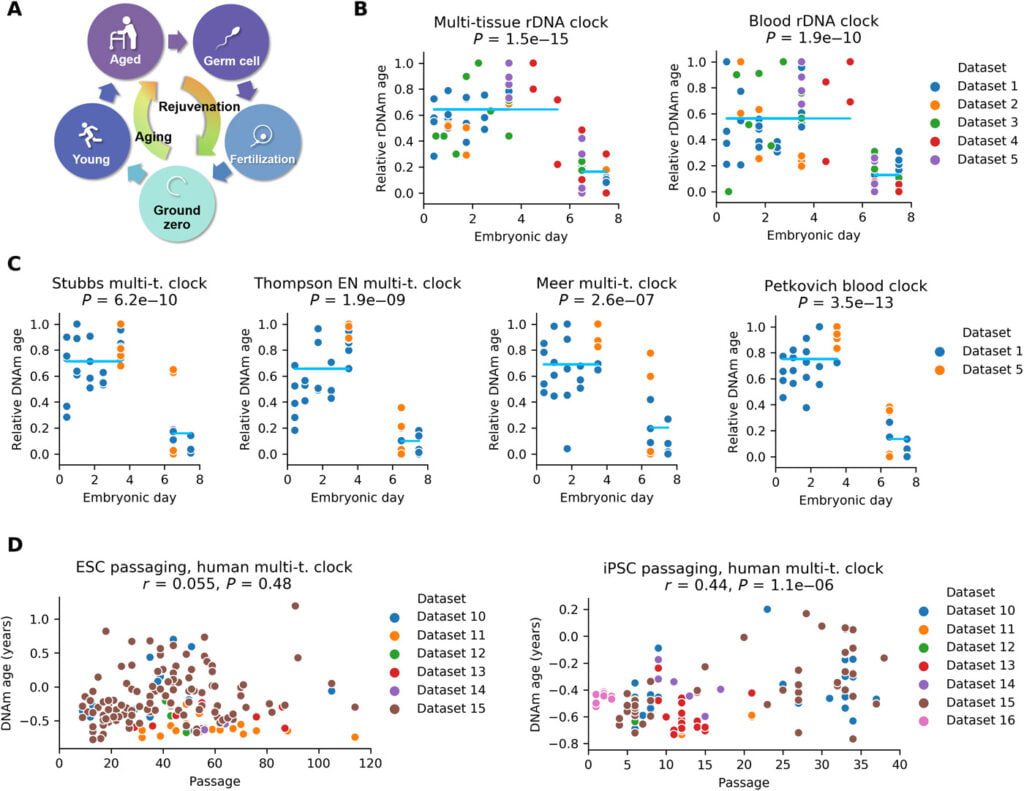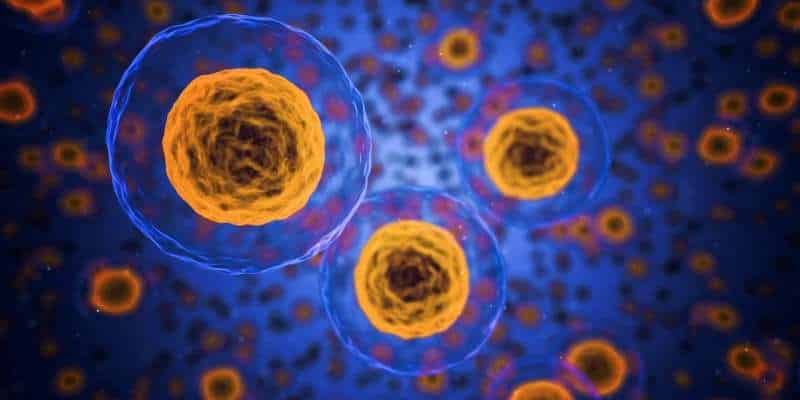A team of researchers from Harvard Medical School has found evidence of human and mouse germ cells restoring their biological age. In their article published in the journal Science Advances, the group describes their study of the aging process in germ cells and what they discovered during the research.
How we thought biological age determination worked…
As animals age, all the cells in their body replicate repeatedly. As the process continues, errors in replication and other external factors (such as exposure to pollutants) lead to a gradual decay in cellular quality, which is all part of the natural aging process.

…and what the research discovered
In this new effort, researchers have found evidence showing that germline cells have a mechanism to restore this process, allowing offspring to reset their aging clocks and biological age.
Germ cells pass genetic material from parent to offspring during the reproductive process. For many years, scientists have wondered why these cells do not inherit the age of their parents. And for many years they thought that cells were ageless, but recent work has shown that they actually age. So this raised the question of how offspring are able to start their lives with fresh cells.
To find out, the researchers used molecular clocks to monitor the aging process of mouse embryos. These watches were developed to measure changes epigenetics in cells. The researchers used them to continually compare the biological age of embryos (how old they appear to be based on reactions to epigenetic changes) with their chronological age. They found that the biological age of mouse embryos remained constant during the initial cell division after an egg was fertilized. But then, about a week after the embryo attached to the uterus, the biological age of the embryos dropped. This finding suggested that some mechanism had reset the embryo's biological clock to zero.
The team then turned their attention to the biological age of human embryos
They were unable to monitor aging in human embryos (due to well-known ethical limitations) but they found evidence that human embryos also “reset” their biological age. Next step? Continue to look for the mechanism behind the recovery process.


